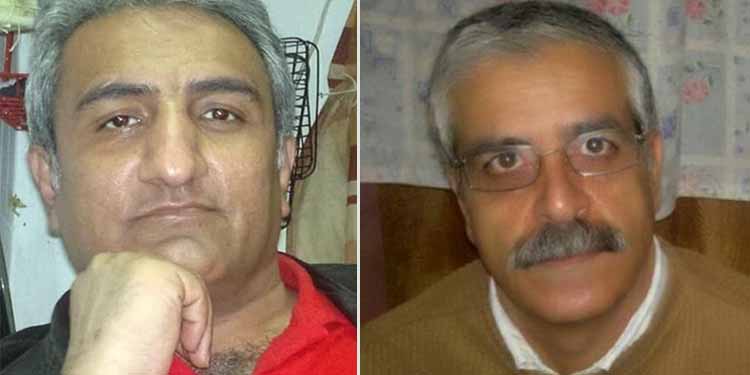Iran-HRM – Political prisoners Afshin Baymani and Abolghasem Fouladvand have been denied access to medical treatment in Rajai Shahr Prison.
Iranian prison authorities have denied the two prisoners access to adequate medical treatment and transfer to a hospital.

Abolghasem Fouladvand was taken to Madani Hospital on Saturday night due to his deteriorating condition and showing symptoms of a heart attack. But he was returned to prison on Sunday, July 11, without completing his treatment and while still suffering from heart condition.
Afshin Baymani, who recently underwent angioplasty has also been deprived of medical care so far despite his heart condition and the advice of doctors who see the need for mitral valve surgery. He should be transferred to a specialized medical centre outside prison, as doctors recommend, for mitral valve surgery but prison doctors treated his serious condition only with sublingual tablets and took an ECG.
Vaziri, the Prosecutor’s special assistant for political prisoners’ affairs has refused to authorize his transfer to a hospital against doctors’ advice.
Afshin Baymani had previously been transferred to prison’s infirmary with severe heart pain on March 11, but Amin Vaziri refused to authorize him hospital transfer.
He suffers from kidney stones and diabetes. He has also suffered from coronary heart disease since July 2017 due to years of being in poor prison conditions.
Afshin Bayemani was sentenced to life in prison in 2000 on the charge of “waging war on God” for cooperating with the People’s Mojahedin Organization of Iran (PMOI/MEK). The ruling was upheld at the time by the Appeals Court but was commuted to life in prison in 2006.
Abolghasem Fooladvand, 59, who is serving the seventh year of his sentence in Rajai Shahr Prison in Karaj, was arrested in 2013 and sentenced by the Revolutionary Court to 15 years in prison on charges of “moharebeh through supporting the PMOI.”
International and Iranian law require prison authorities to provide adequate medical care. Iran’s state prison organization regulations state that, if necessary, detainees must be transferred to a hospital outside the prison facility. The UN Standard Minimum Rules for the Treatment of Prisoners require authorities to transfer all those held needing specialist medical treatment to specialized institutions, including civilian hospitals.
However, Iranian authorities routinly exert pressure upon prisoners, especially prisoners of conscience and political prisoners, through denying them medical treatment.
Many prisoners have either become critically ill or suffer from longstanding and serious medical conditions that have been left untreated in Iran’s prisons.
In an episode that highlights Iranian authorities’ denial of crucial medical care to prisoners of conscience, Behnam Mahjoubi died on February 21, 2021, after untreated serious neurological issues.
 Shabtabnews In this dark night, I have lost my way – Arise from a corner, oh you the star of guidance.
Shabtabnews In this dark night, I have lost my way – Arise from a corner, oh you the star of guidance.



